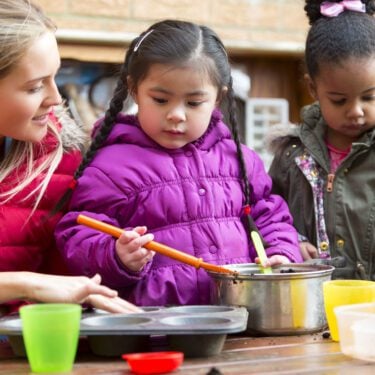Using calculators in maths lessons can boost pupils’ calculation and problem-solving skills, but they need to be used in a thoughtful and considered way.
This is according to a review of the evidence, much of which was funded by the Nuffield Foundation, published by the Education Endowment Foundation (EEF) today. It was also found that the age of pupils matters, too. Primary school pupils should use calculators regularly but not every day. Secondary school students should have more frequent access to calculators so that they’re able to make decisions about when, and when not, to use them.
The report has clear implications for teachers: they need to teach pupils how to use calculators. For example, pupils might be taught strategies for estimating tricky calculations that they would then use a calculator to work out accurately.
Today’s review – commissioned by the EEF and the Nuffield Foundation – analyses the best available international research on teaching maths to children aged 9-14 (Key Stages 2 and 3) to find out what the evidence says about effective maths teaching.
It was commissioned to support the EEF’s guidance on teaching maths, published at the end of last year and focusing on practical “dos” and “don’ts” of great maths teaching. Improving Maths in Key Stages 2 and 3 has recommendations in eight areas, each designed to support primary and secondary schools to close the attainment gap between disadvantaged pupils and their classmates.
The latest data shows that 59% of pupils who are eligible for free school meals achieved the expected standard in maths by the end of primary school, compared to over three-quarters (78%) of all other pupils.
Today’s report also finds that teachers should help pupils to use a range of mental and other methods and be able to recall number facts efficiently and quickly. The evidence suggests that those who are unable to do this may have difficulty with harder maths later in school. But while fluent recall is important, teachers should also help pupils understand how different calculations work and when they are useful.
This research is valuable because it synthesises a huge range of international evidence on what works and what doesn’t when it comes to teaching maths. For instance, it tells us that collaborative learning has a positive effect on attainment, but that setting or streaming students by ability generally does not. It also provides an invaluable checklist for areas where further research is needed, for example in relation to the reasons behind low attainment in maths and what teaching strategies might be effective in addressing it – something on which the Nuffield Foundation is funding further work.”Josh Hillman, Director of Education at the Nuffield Foundation
It’s often said that calculators can harm students’ arithmetic skills. What this review finds is that they can actually boost pupils’ fluency and understanding of maths – but that to do so, teachers should ensure they are used in a considered and thoughtful way, particularly with younger students. There are thousands of potentially useful studies out there on maths, most of which are presented in academic papers and journals. It can be difficult for teachers to know where to start. This new report looks at the best available evidence to give schools and teachers clear ideas of what works when it comes to maths teaching. The findings will help schools navigate the wealth of information out there and give all their pupils the knowledge and skills they need to succeed.”Sir Kevan Collins, Chief Executive of the Education Endowment Foundation











































